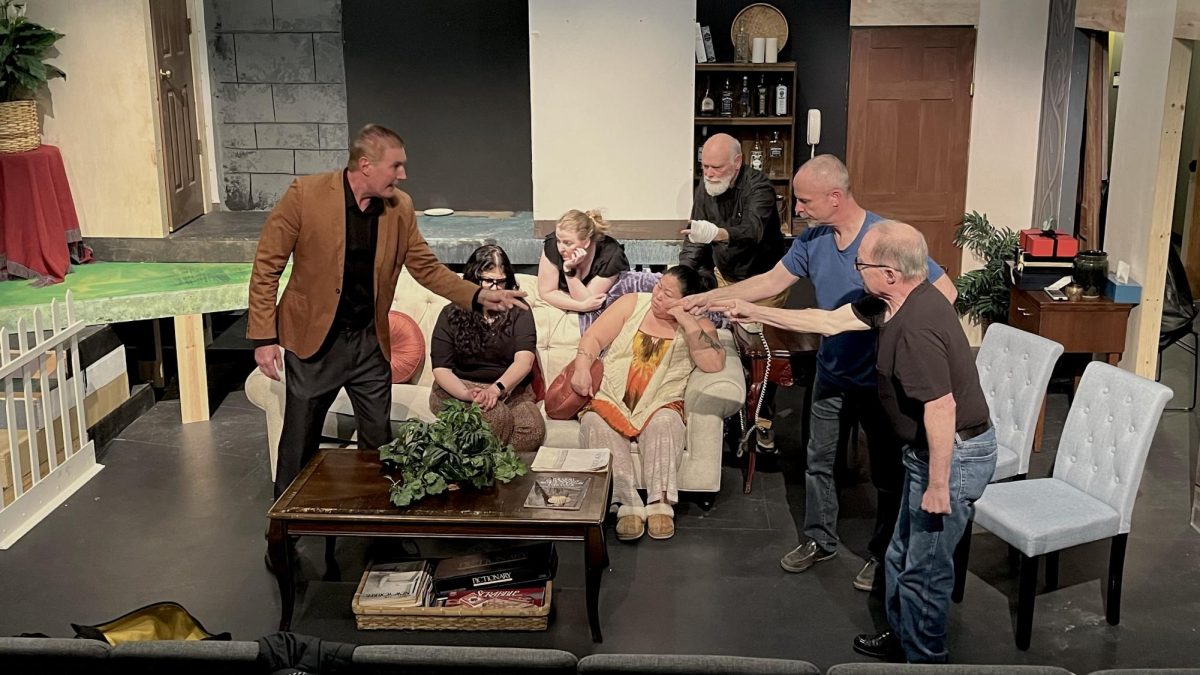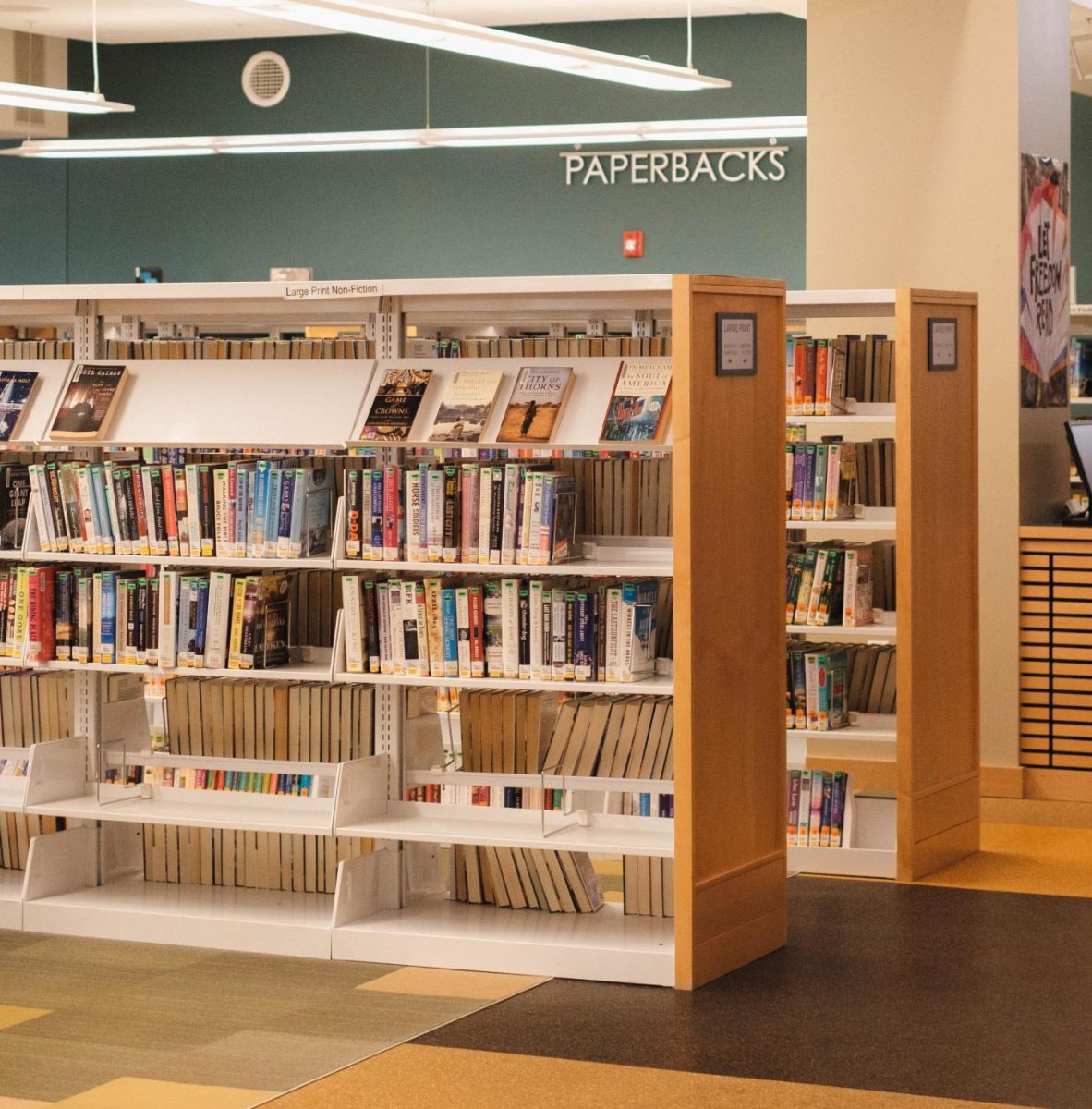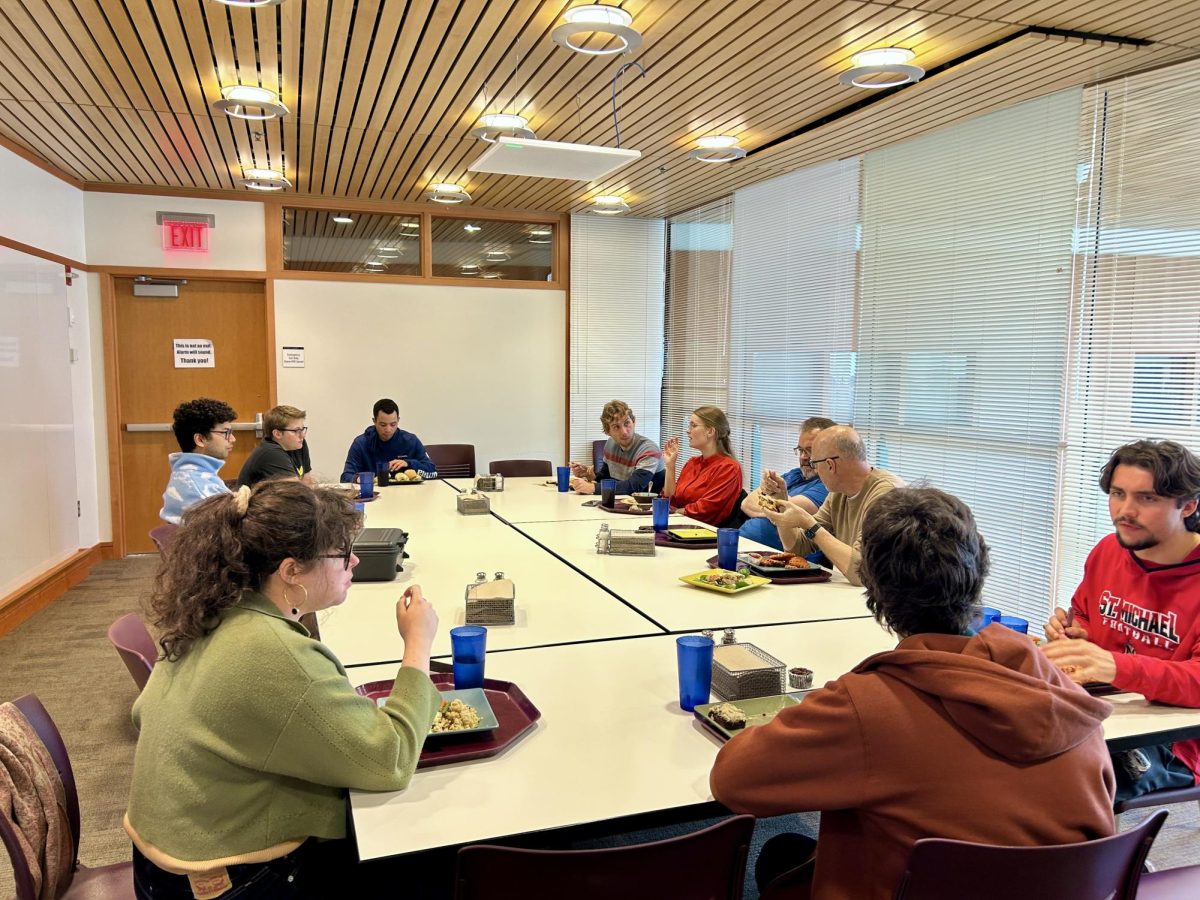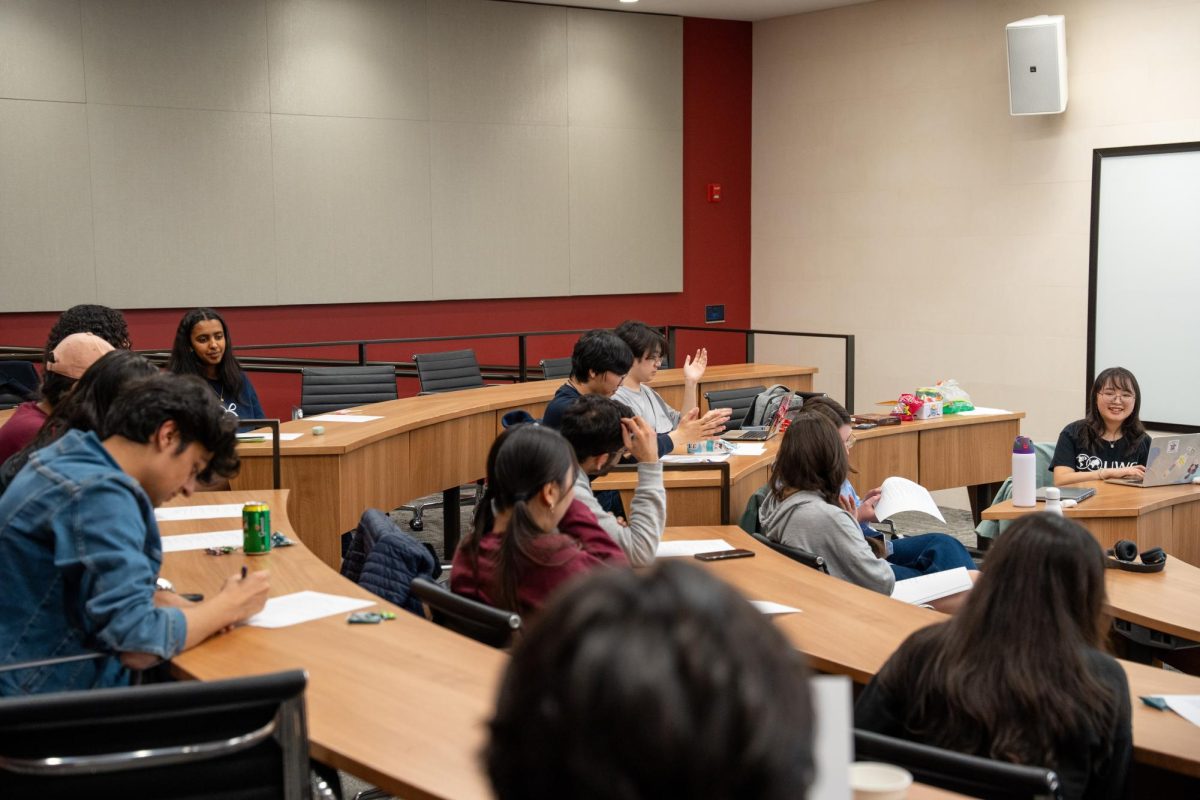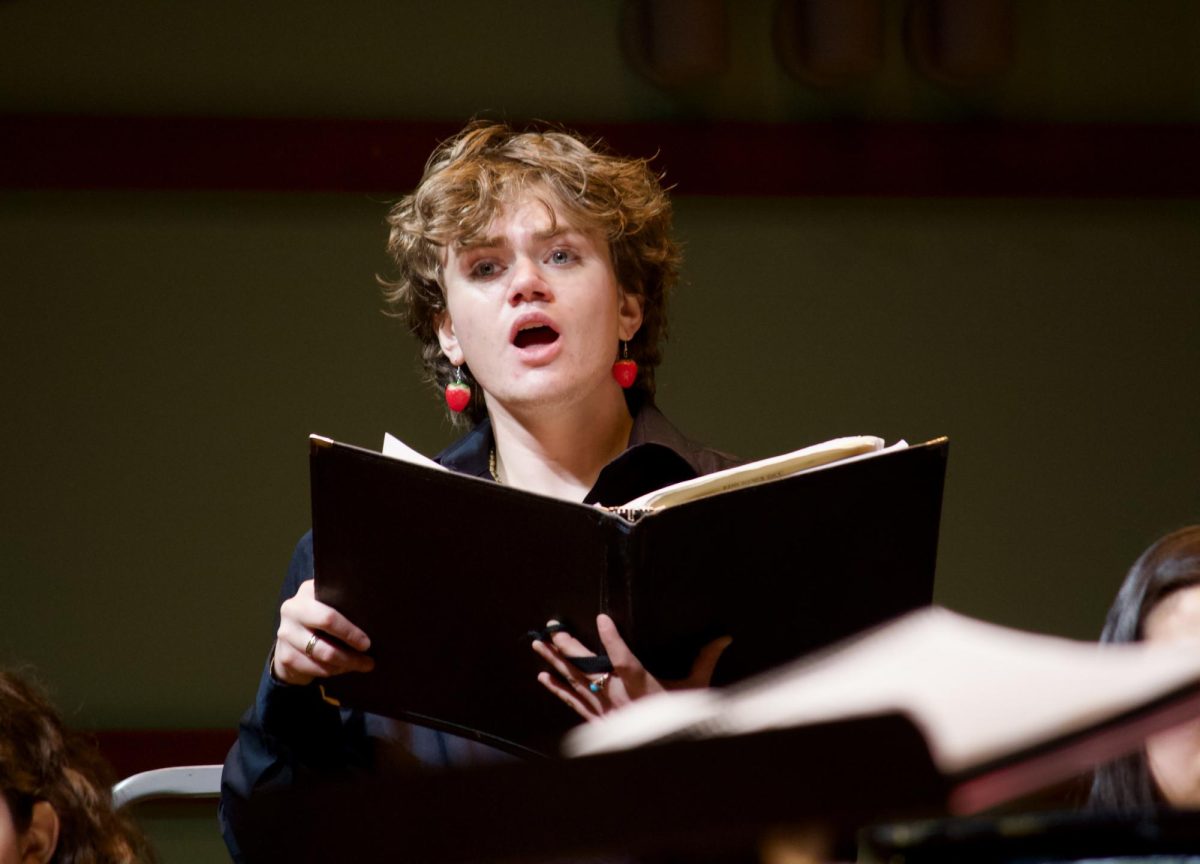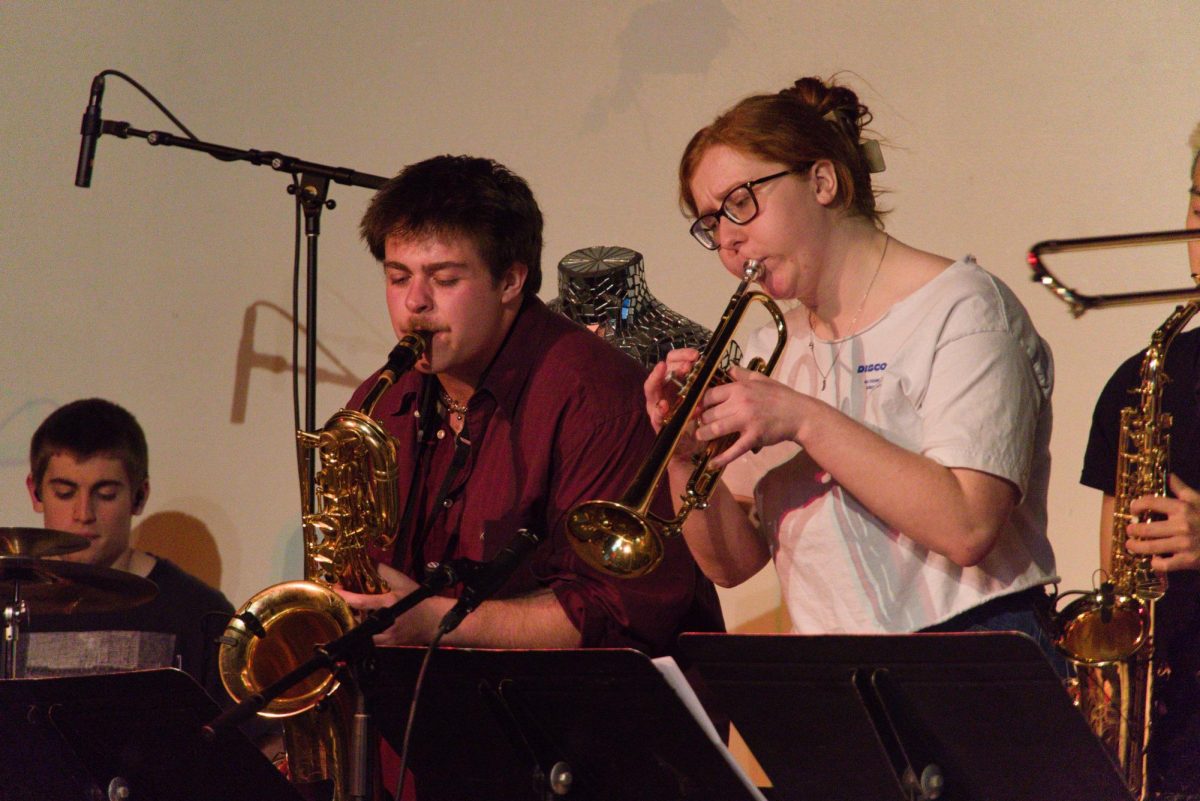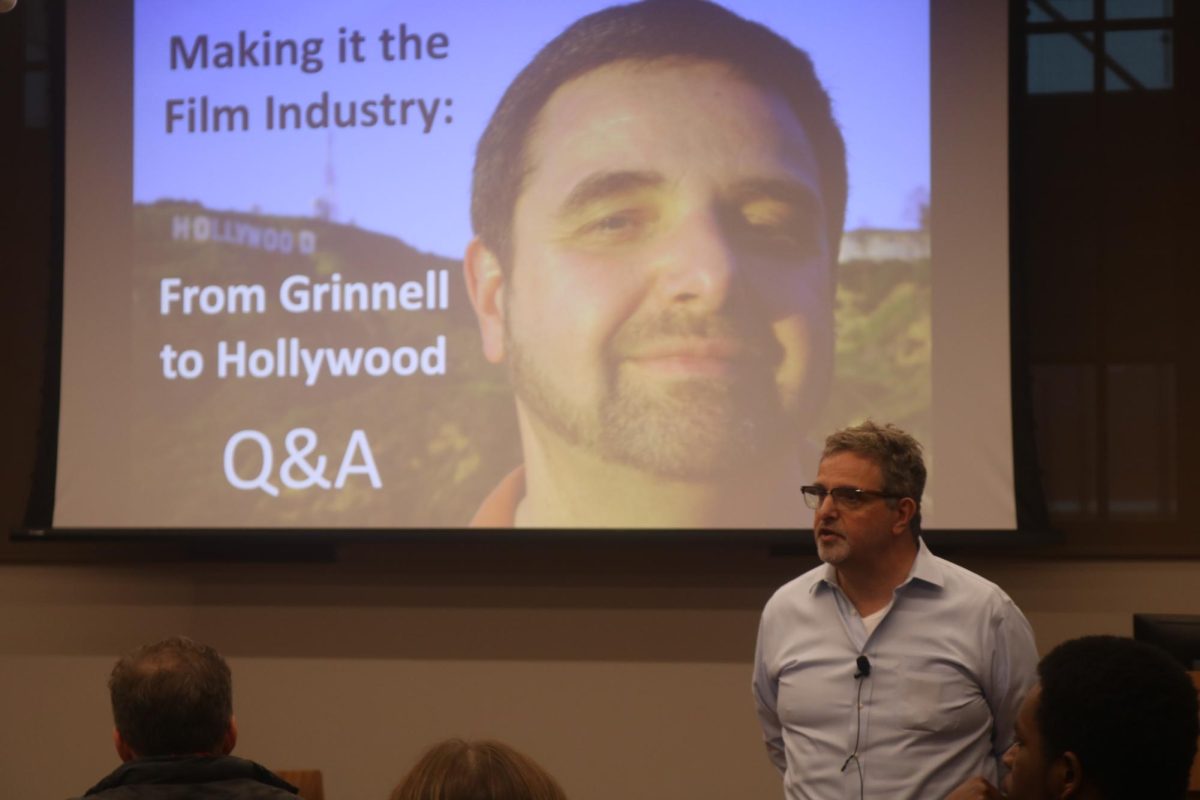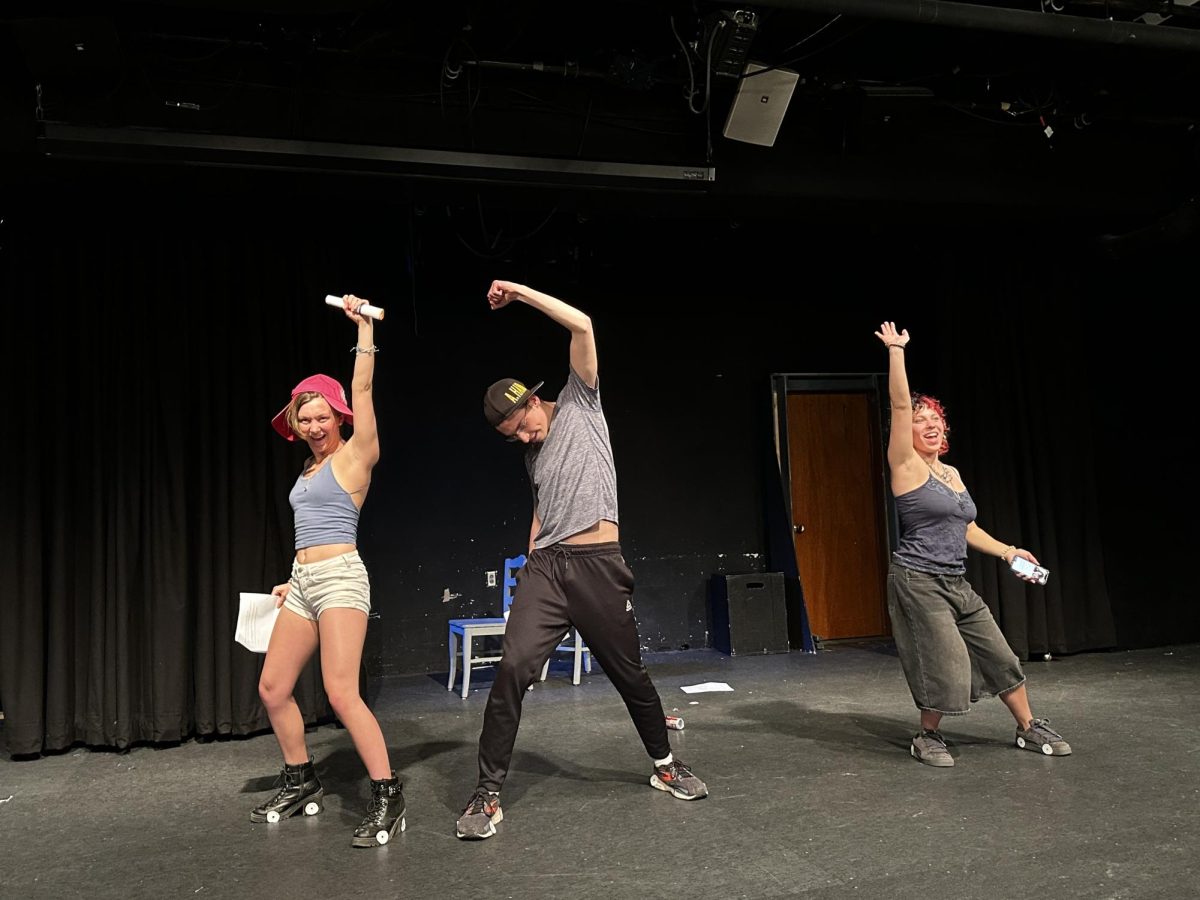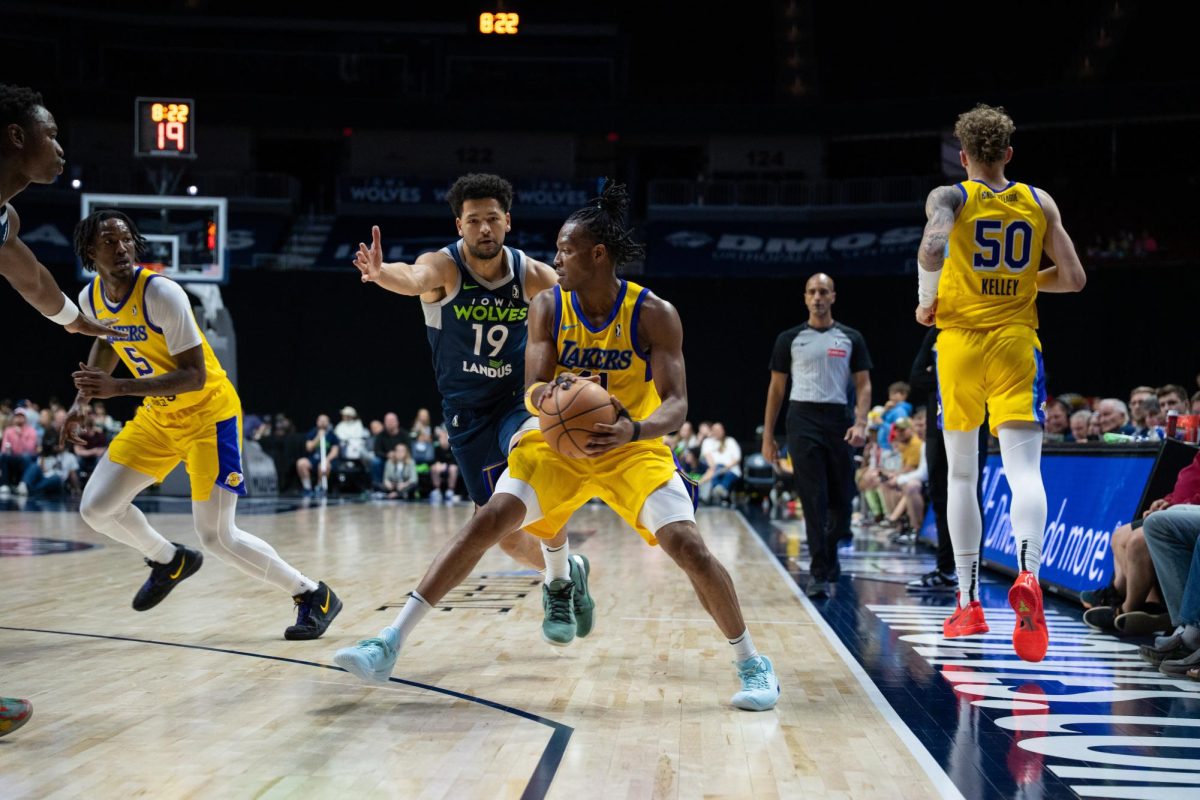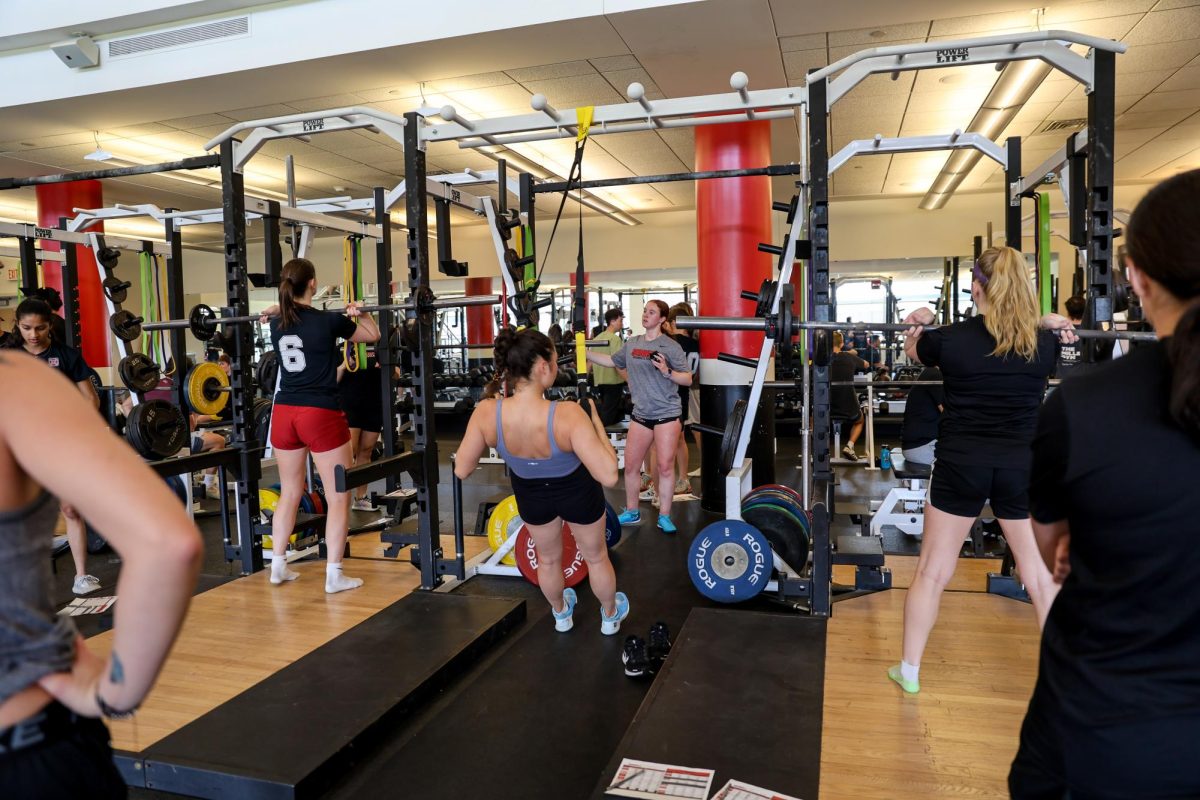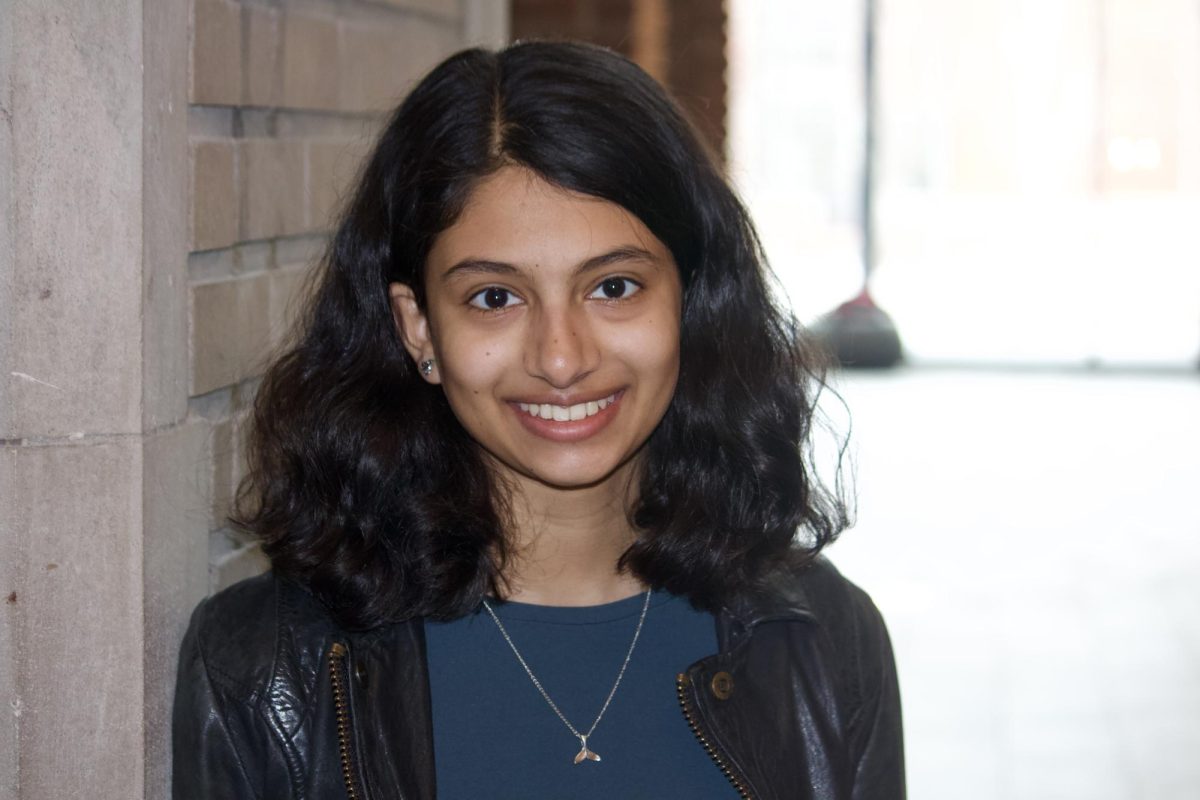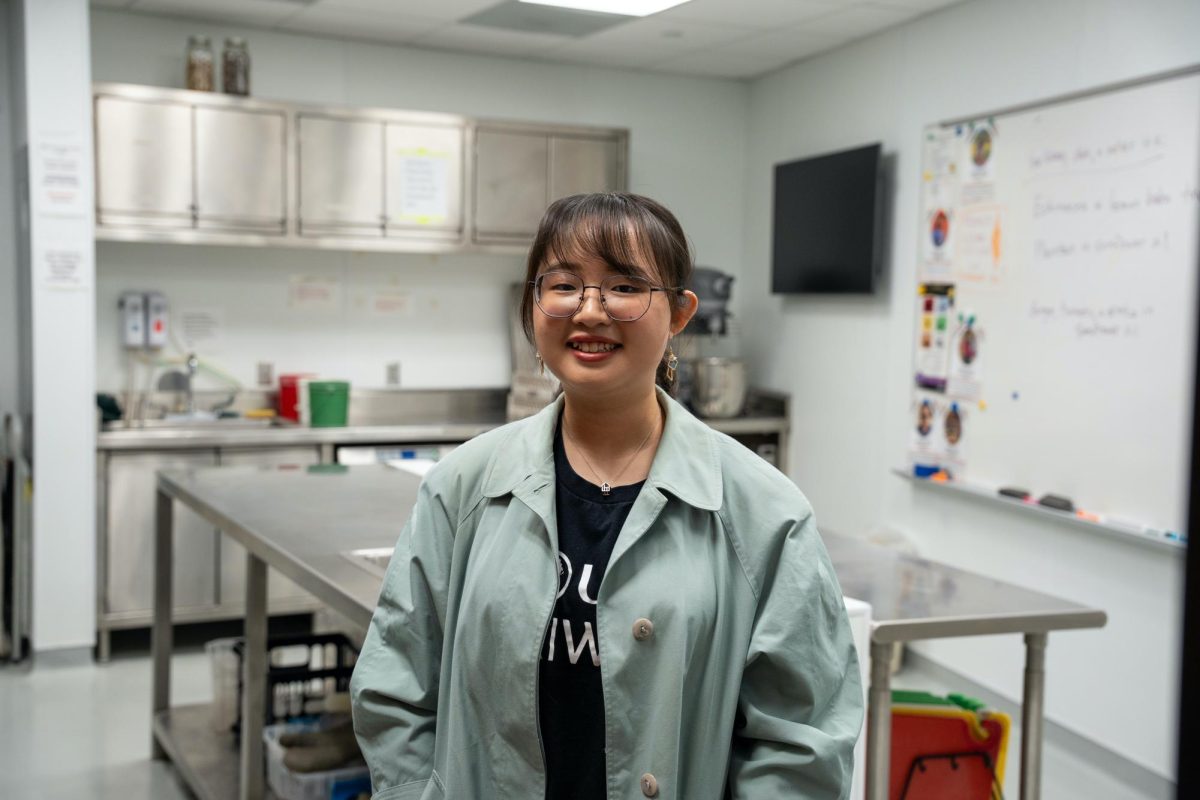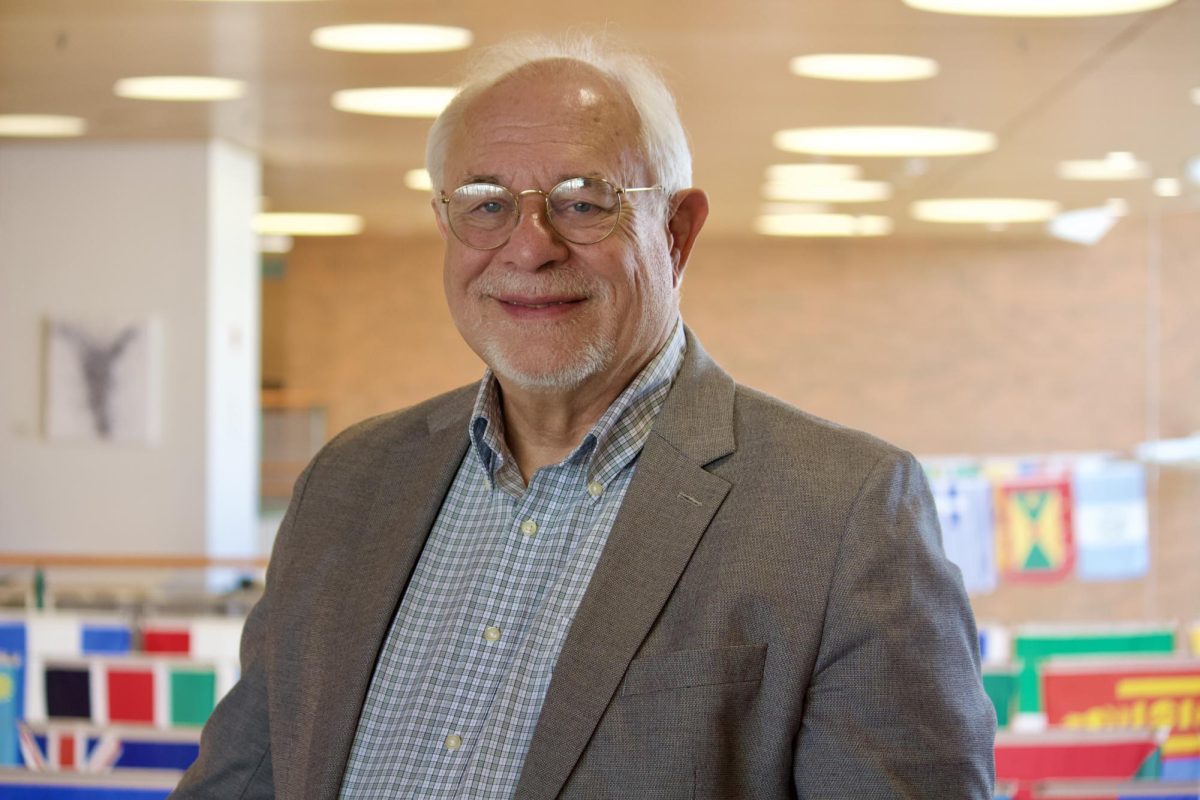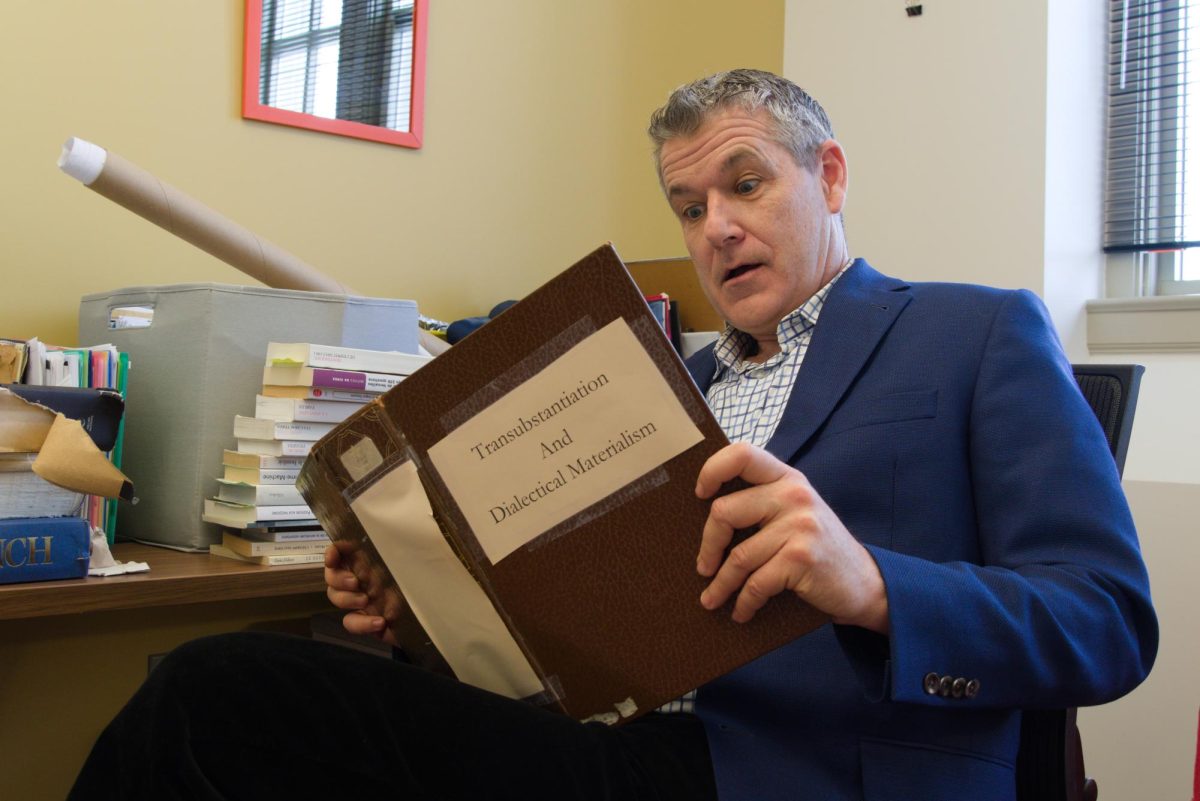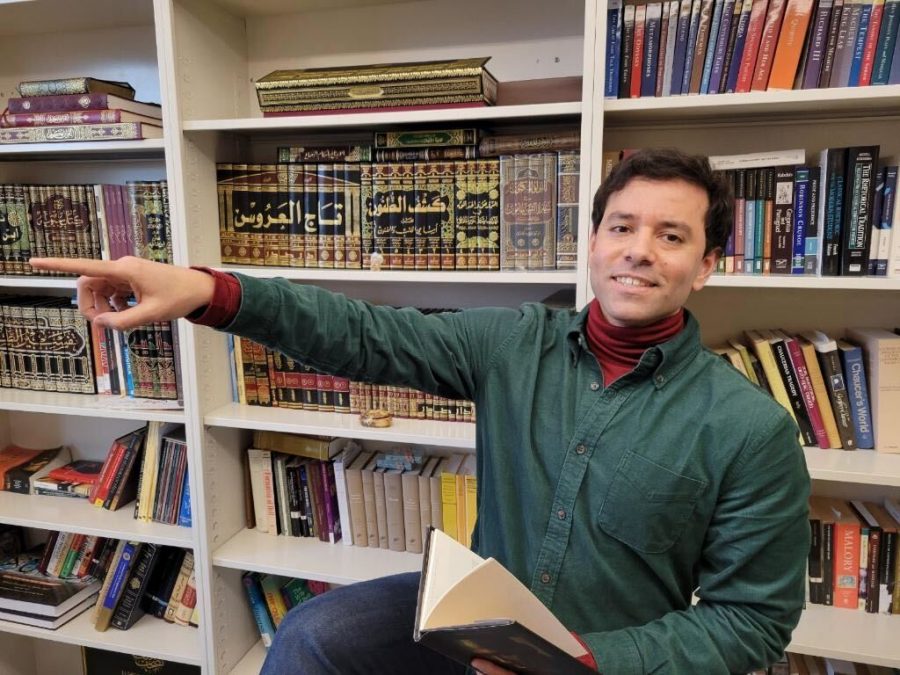Office Hours: Sherif Abdelkarim, English
Professor Sherif Abdelkarim, English, gives tips on how to read.
February 20, 2023
In Office Hours, Raffay Piracha `25 sits down with professors to learn how their scholarship provides them with equipment for living.
We often think of academics as practitioners of “theory,” people who labor to analyze and develop abstract ideas inapplicable to the world we inhabit outside of the classroom. In this series, I aim to push the limits of scholarly knowledge to understand when faculty blur the line between personal and academic thinking — if they can be differentiated at all.
I’m probably not the only person wondering why I’m here, why I’m studying what I’m studying, what the point of my time in Grinnell is or what questions I’m missing out on answering because they seem too rudimentary. To ensure that I’m getting the greatest variety of expert advice, I’m meeting with as many Grinnell faculty members as I can to hear how they go about living and why.
This week, I’m thinking about reading. College moves fast. Within two years, we’re declaring majors and choosing course loads that will inevitably affect the rest of our lives. How often — when we show up here — do we stop to consider what it means to think? To write? To speak? To read? How many students miss out on studying language because they think they can’t speak to the reading the way that most talkative kids do in class?
I sometimes joke that I major in English to learn reading, but there’s truth to it. I’m constantly wondering what it feels like for someone else when they encounter the written word. What are they highlighting? What am I supposed to look for? We often read and serendipitously wind up with new evidence to prove things we already want to believe, whereas sometimes, reading brings us to new conclusions or ways of moving through the world; no two styles are the same.
So, with an excerpt from “A Recitation of Ifa, Oracle of the Yoruba” in hand (a passage unfamiliar to my first interviewee), I asked medievalist Sherif Abdelkarim, professor of English, to teach me how to read.
***
Hey, Sherif Abdelkarim, how do you read?
“First, speed reading does not apply to college-level reading. I’m not a big fan of the idea — I don’t really practice it myself. I’m a very, very, very, very slow reader. So, I wouldn’t read [a 100-line poem] once, I’d read it several times. You have to reread poetry if it’s real poetry, to reflect on it, right? I think there are levels of reading, so you could go through it once just to get a basic, literal level of understanding … I don’t read aloud, not even my own work.”
(Referring back to the text): “Okay, so there’s a lot of information here that I’m not going to unpack on the fly. So, this concept of [proper noun from text], I would take notes. I love taking notes on the page itself. I take notes in ink. I’m not a huge fan of pencils, so I don’t mind scratching things out. I don’t mind having a messy book, I think it shows that it’s been used and worn. It’s a great way to create memory through longhand. I’m not a huge fan of using, like, external brains, like a laptop or something … I’m flagging major characters and actions. I like to think of all writing and all argument as storytelling, so instead of thinking about nouns and verbs, I think about characters and actions — something I learned from one of my professors.”
What if you don’t know a word?
“I make a mental note [during] the first run-through and then definitely look up words. I’m a huge dictionary guy. I love looking up words in a physical dictionary, online or both — these days it’s mainly online, but I have several physical dictionaries.
So, to go back to your question of reading, what is the text doing? Nonliterally, because we’re very used to reading text for information, but that information could be conveyed just as with body language, nonverbally, so the way the page is moving, the way that the text is moving … and then also the italics versus just standard type — the capitalization being used, which is not always done in contemporary poetry. So, I would spend a lot of time with this poem because it’s long and it’s a poem. I would probably spend at least half an hour with this, probably no more than an hour. Students need to know that professors are very slow readers, and I have no problem speaking on behalf of every professor.
Reading should be like enjoying a good meal. You don’t want to speed eat through any meal that you have.You want to taste the nutrients that you’re absorbing, to ruminate over the various flavors as you, likewise, in a text want to ruminate over the ideas and enjoy the language, the metaphors. Again, just even the presentation on the page.”
What if you don’t have the time to read that exhaustively?
“Yes, you had this beautiful meal, and you couldn’t consume it. Or somebody took it away from you. As a student, the best advice I got was before I started undergrad. A teacher told me at orientation that if you can’t keep up with the work, that’s okay. You just want to make sure you show up to class. Then, read later, read after the semester even, but show up to class, because that’s really what the point of being in college is. It’s not about reading cover to cover when you don’t have time. Hold onto those books. Invest in that library. Because those moments will come in life when you have the month, the two months, three months to read, maybe sometimes a whole year of reading. Then, my other advice: your time is only gonna get shorter as you keep going through life. So, you have to prioritize carving out time. Like, I’m gonna block out two hours just to read every single day right in the beginning of the day, at the end of the day, [and] the middle of the day, but you have to find and structure that time in advance. Maybe you’re not always going to do that, but if you have a stable job, a stable life at school, then that is in your hands to just make that time. Even if it means waking up, you know, extra early, staying up extra late just to read. There are just too many moving parts for you to do that perfectly with all these classes. I think the number one priority is to go to class. We don’t have to speed race through life.”





